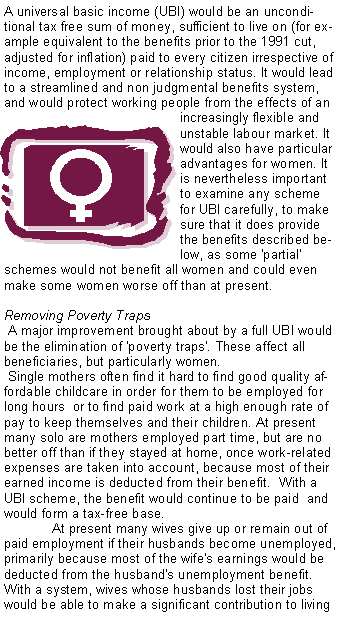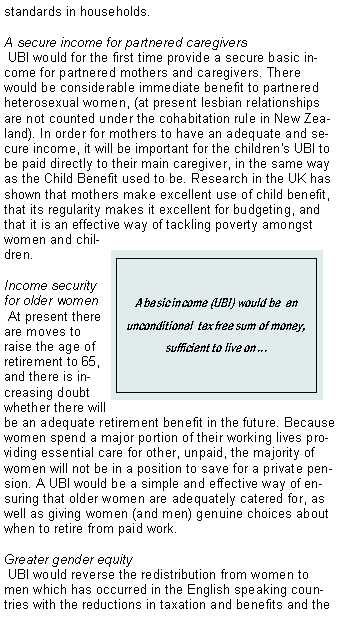|
may have needs that can only be met equitably by universal provision of health, education and welfare.
Withdrawal of the state may enhance individual or voluntary charity---but such systems cannot substitute for state provision in terms of efficiency, equity and justice.
Most of the points listed above are adapted from Jonathan Boston's chapter, "Targeting: Social Assistance for All or Just for the Poor", in Boston and Paul Dalziel (eds), The Decent Society? Auckland: Oxford University Press (1992).
|
|

